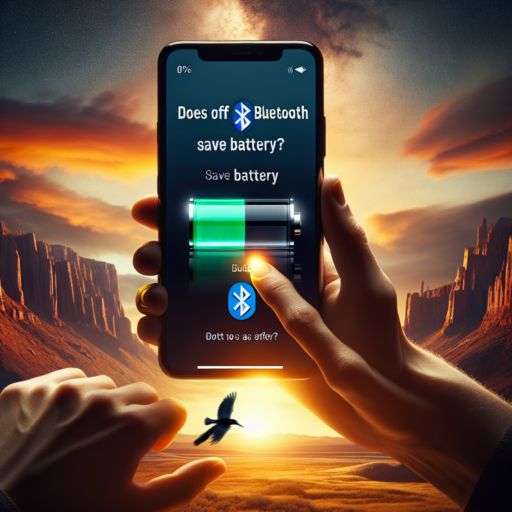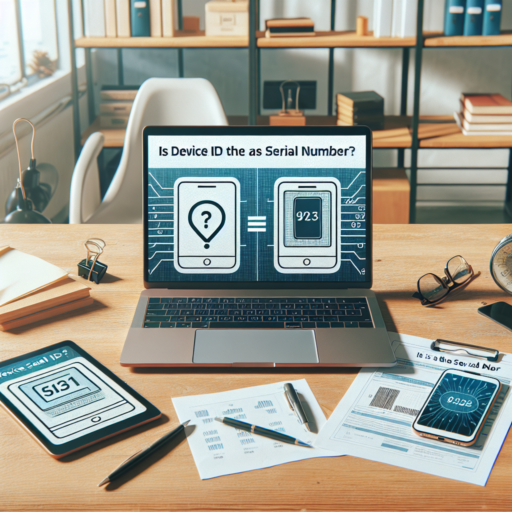Does turning off Bluetooth increase battery life?
Many mobile device users often wonder if turning off Bluetooth can actually lead to a longer battery life. While the short answer is yes, the impact can vary greatly depending on how you use your device and what model you own. When Bluetooth is on, it continuously searches for signals, trying to connect to devices or networks, which inevitably consumes power.
Understanding Bluetooth’s Impact on Battery
Modern smartphones are designed to manage their power usage efficiently, and that includes how they handle Bluetooth. When not actively connected to another device, Bluetooth’s energy consumption is relatively low, thanks to technologies like Bluetooth Low Energy (BLE). However, if you’re not using Bluetooth features, turning it off can save a small amount of energy. This is particularly true for devices that frequently scan for new connections or for those that are a few years old and might not have the latest energy-saving technologies.
When to Consider Turning Off Bluetooth
- While sleeping: If you don’t use Bluetooth devices like smartwatches or health trackers overnight, turning off Bluetooth can save battery life.
- During long periods of inactivity: If you know you won’t be using any Bluetooth-connected devices for an extended period, switch it off to extend your battery life.
- To improve device security: Beyond battery savings, turning off Bluetooth can also reduce the risk of unwanted access to your device, serving a dual purpose.
Should I turn Bluetooth off when not in use?
In this digital age, where security and energy efficiency are of paramount concern to smartphone and device users, the question of whether to turn off Bluetooth when it’s not in use garners significant attention. Bluetooth, a ubiquitous technology that allows for wireless communication between devices, has become a staple in our daily lives, offering convenience and functionality. However, it’s essential to consider the potential implications of leaving Bluetooth on all the time.
Security is one of the primary concerns when it comes to the continuous use of Bluetooth. Cybersecurity experts have pointed out that hackers can exploit vulnerabilities in Bluetooth connections to access personal information or spread malware. Known attacks, such as BlueBorne and BlueSnarfing, exploit Bluetooth’s open doors to carry out unauthorized activities. Therefore, turning off Bluetooth when not in use can significantly reduce the risk of falling victim to these cyber threats.
Moreover, power consumption is another aspect to contemplate. While modern Bluetooth versions are designed to use relatively low power, keeping Bluetooth active can still drain your device’s battery, albeit slowly. For those who are keen to preserve every bit of battery life, disabling Bluetooth can contribute to a marginally longer battery lifespan, especially on devices that are already struggling with power management.
Does turning on Bluetooth drain the battery?
Many people wonder about the impact of keeping Bluetooth enabled on their device’s battery life. While it’s true that any active connection or background process can have an influence on power consumption, Bluetooth technology has evolved significantly over the years. Modern Bluetooth Low Energy (BLE) protocols are designed to minimize power usage, making the act of merely leaving your Bluetooth on less draining than you might think.
However, it’s important to consider the context in which Bluetooth is used. Active data exchange, such as streaming audio to wireless headphones or linking to a smartwatch, naturally consumes more power. These actions require a constant flow of data between devices, which can lead to a noticeable decrease in battery life over time. It is in these scenarios that the question of Bluetooth’s impact on battery drain becomes most relevant.
Factors Affecting Bluetooth Battery Consumption
- The number and type of devices connected: Connecting to multiple devices simultaneously can increase power usage.
- The distance between your device and the connected devices: Greater distances can cause Bluetooth to work harder to maintain a connection, using more battery power.
- The version of Bluetooth technology: Newer versions, like Bluetooth 5.0, are more energy-efficient than their predecessors.
Is it OK to leave your Bluetooth on all the time?
Many users wonder about the implications of keeping their Bluetooth turned on constantly. With the proliferation of Bluetooth-enabled devices, from smartphones to wearable tech, understanding the impact on both security and battery life is more relevant than ever. This perspective aims to shed light on whether it’s advisable to have your Bluetooth active continuously.
Security Concerns
One of the primary considerations is security. When your Bluetooth is on, it potentially opens up a gateway for cyber threats. Hackers could exploit vulnerabilities to carry out activities such as unauthorized access, data theft, or eavesdropping. Although advancements in Bluetooth technology have strengthened its security, the risk remains, especially in crowded public spaces.
Battery Consumption
Another aspect to consider is battery usage. Leaving Bluetooth on all the time does use some power, but with modern devices, the impact is negligible for the most part. The actual drain on your battery will depend on several factors, including the number of paired devices and how actively they communicate. However, for users looking to maximize their device’s battery life, turning off Bluetooth when it’s not needed can contribute to power savings.










